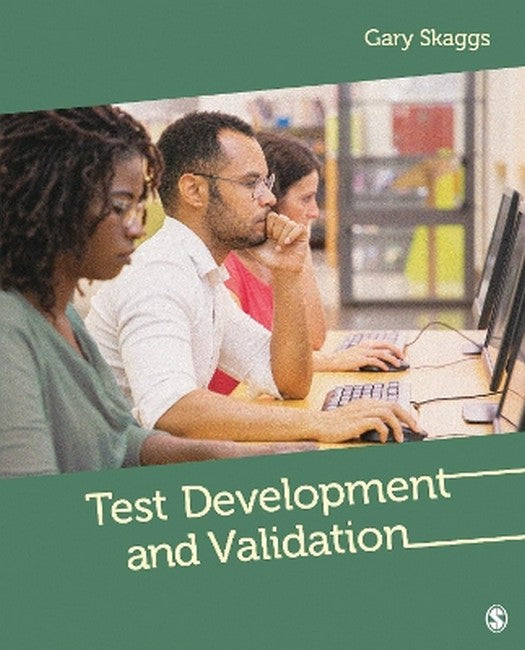Dr. Gary Skaggs is a Professor in the Educational Research and Evaluation Program at Virginia Tech. He teaches courses in test development and test theory as well as introductory and intermediate statistics. He is the author or co-author of 81 publications, including articles in peer-reviewed journals, papers in conference proceedings, book chapters, invited lectures, and professional conference papers/presentations. His research interests include test equating, differential item functioning, standard setting, and cognitive diagnostic models. Dr. Skaggs has served as a test and psychometric consultant to numerous professional organizations including the GED Testing Service, Maryland State Board of Education, National Board of Professional Teaching Standards, Carilion Clinic Department of Psychiatry, and the National Association of Secondary School Principals.
Request Academic Copy
Please copy the ISBN for submitting review copy form
Description
Part 1: The Big Picture Chapter 1: Measurement in the Social Sciences Chapter 2: The Evolution of Validity Chapter 3: Test Scaling and Scoring Chapter 4: Classical Test Theory Part 2: Test Development Chapter 5: Frameworks for Test Development Chapter 6: Test Specifications Chapter 7: Item Writing and Scoring Chapter 8: Pilot Testing and Item Analysis Chapter 9: Introduction to Rasch Measurement Theory Part 3: Validation Chapter 10: Fairness, DIF, and Item Bias Chapter 11: Dimensionality Chapter 12: Standard Setting Chapter 13: Validity Evidence and Validation Plans Appendix A: Guide to Sample Data Sets Appendix B: R Code for Analyses
I love the progression of the discussion through various graphs. This helps walk readers/students through the rationale behind Rasch, whereas so many other texts just present the various curves and estimates/equations as independent concepts to learn. -- Julia Englund Strait Students can really develop a critical insight of all the phases of the test development procedures. The book provides clear information for students to understand what they need to consider when developing an instrument as well as what to look for when choosing an instrument to integrate in practice. -- Alessandro Quartiroli Nicely written and includes many tacit aspects of assessment that will be helpful to students. It is clear from the writing that the author has extensive experience in the field. -- Robert Dedrick

